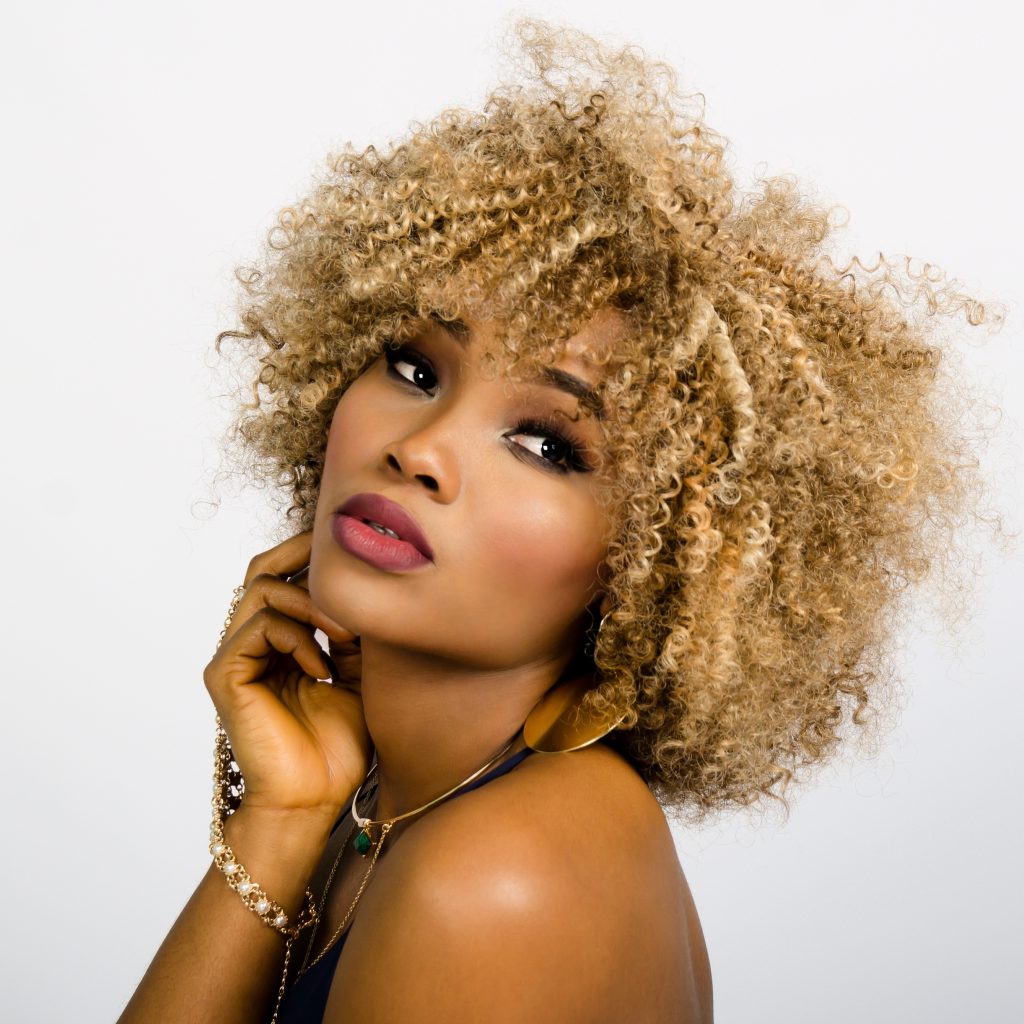Tips For Maintaining Healthy Black Hair
1. Moisturize African American Hair Regularly
Adopting a regular moisturizing routine could possibly minimize most breakage issues in black hair. Women should apply moisturizing products to their hair after every wash and reapply a few times a week. Apply moisturizer daily during the winter months. There are no exceptions if you want to maintain healthy black hair. It is important to choose a water-based moisturizer. Avoid products with mineral oils and petroleum. Petroleum can clog the hair pores and cause more dryness and damage to the hair. Some natural options for moisturizing black hair may include:
- Coconut Oil
- Shea Butter
- Aloe Vera
- Vegetable Glycerin
- Castor Oil
- Olive Oil
- Grape Seed Oil
- Jojoba Oil
2. How to Grow Natural Hair: Know Your Hair Texture
There are many different types of hair textures in black women. They generally range from 4a-4C. The 4a texture is a tight curl pattern. A kinkier texture would be 4b. And the coarse texture would be 4c, which requires the most TLC. Understanding one’s texture is important for choosing the right product. The labeling of most natural hair products accurately describes the texture of hair that the item is meant for. Choose natural hair growth products that specifically target your hair type to maintain healthy black hair.

3. Wash Hair Regularly
Black hair should be washed at least once every two weeks. Many black women avoid washing their hair to maintain the freshness of braid and extensions styles. But it is very important to avoid bacteria buildup and also eliminate mildew-like smells. It is suggested to condition the hair every week. This is known as “co-washing”. Regular shampoos contain harsh ingredients that are often found in laundry detergents. Therefore, it will be important to choose specialized moisturizing and sulfate-free shampoos.
4. Avoid tight braids, weaves, and extensions as much as possible.
Dr. Umar warns that styling practices which constantly pull at the hair can actually tear the follicles. These practices can cause permanent damage as well as hair loss such as traction alopecia. This is the reason why many black women experience thinning or baldness in the margins and edge of their scalps, such as the temples, hairline, and sides of the head.
5. Black Hair Care: Choose a qualified professional for relaxing and coloring the hair
Many black women who purchase hair relaxer and coloring products make the mistake of leaving the solution for as long as possible to get the best results. But this can lead to extreme forms of damage. According to Dr. Umar, hair relaxer products for home use are not safe, even the ones that are labeled as “no-lye.” The process of softening curls or even straightening the hair of black women requires specialized expertise. An experienced professional would know how to avoid over-processing the hair with chemicals and establish appropriate time limits for leaving relaxants in the hair. It is always best to use a “mild relaxer”, which is also known as a texturizer. To maintain healthy black hair, a hair relaxer should simply be used to loosen the curl pattern and make the hair easier to manage. When it comes to coloring, it is best to use a semi-permanent or ammonia-free product. Do not relax colored hair. This is called double-chemical processing and will most likely damage the hair. Make sure all the relaxed tresses have been cut off before getting a color.
6. Minimize the use of flat irons and other heating tools
It is important to avoid the use of heat as much as possible. Heat causes hair to lose moisture and overuse can lead to dry brittle hair. Limit the use of heating devices such as curling or flat irons to once a week. Also, use a heat protecting serum or moisturizer beforehand to prevent damage to the hair. Avoid pressing too hard, and repetition.
7. Maintaining Healthy Black Hair: Choose a wide-toothed comb instead of a brush
When it comes to reducing breakage, a wide-toothed comb is a much safer choice. Brushes tend to tug at the hair and cause split ends. Though combing is a better method, avoid excessive combing. The hair should always be gently detangled with the fingers before combing. Practicing these methods can help women of color avoid hair breakage and permanent damage. Understanding the particular needs and nature of black hair is important for maintaining healthy tresses. Questions about this article? Send us a message.
Frequently Asked Questions - Maintaining Healthy Black Hair
How can I make my African American hair healthier?
A regular routine of gentle washing and deep conditioning can help afro-textured hair health. Another way to improve black hair maintenance is to refrain from using harsh chemical relaxers and opt for hairstyles that are easier on the roots.
I don't have the time or resources for maintaining healthy black hair at salons and stylists, what do I do?
There are several ways to improve hair health without salon or stylist visits. One of the most effective ways of maintaining healthy black hair is to find a natural product that works for your hair texture. After you have found one that improves your hair, incorporate it into your daily beauty regime.
Can I still style my hair and wear weaves if I am trying to maintain healthy black hair?
As long as your hairstyle does not put too much pressure on the scalp, it should not negatively affect hair health. Weaves and extensions should be lightweight and easy on the roots to prevent tearing the follicles, resulting in traction alopecia.




